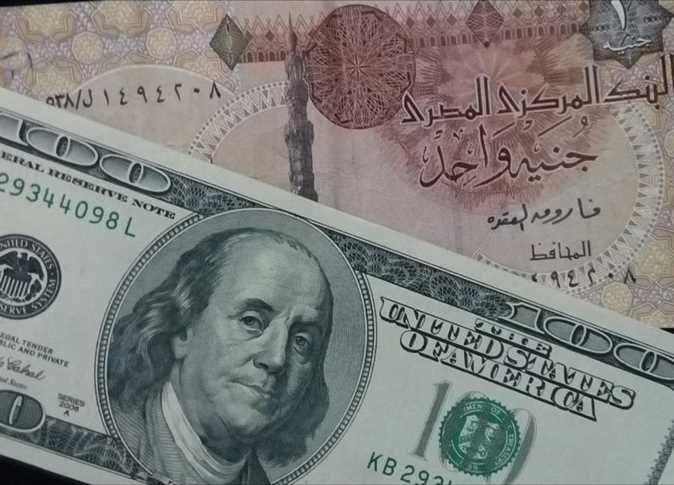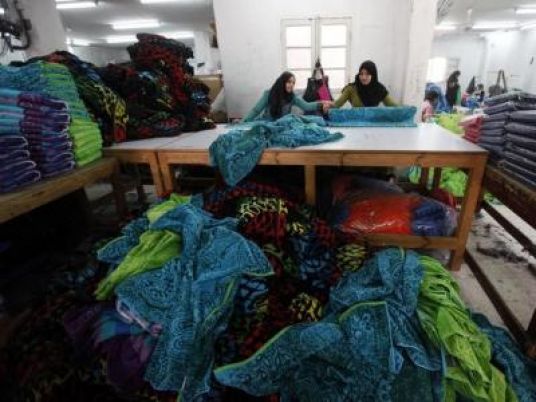
The Egyptian government is trying to counter high demand for US dollar via new sources of foreign currency.
One of these efforts is establishing a company for Egyptians expats to invest their savings in various economic activities in the local market. This aims to achieves a high return for them, and increases direct investments.
The Egyptian government is also working to save the US dollar by completing the steps of commercial dealings with Russia in local currencies, and expanding to include China and India.
According to a statement by Immigration Minister, Soha Gendi, a deal was made to establish a joint stock company for Egyptians abroad, including major investors who responded to a request to participate in the establishment, or small investors who wish to preserve and develop their savings.
And the Chairman of the Plan and Budget Committee in the Egyptian Parliament Fakhry al-Feki, said that the aim of establishing the Egyptians Expats Investment Company is to provide an opportunity for residents abroad or Egyptians with other nationalities – whose numbers range between 12-14 million worldwide – to subscribe to the company to develop their savings and still be linked to their home country.
This money will be invested in government offerings or other investment opportunities in several areas, including real estate, tourism, education and health, Feki explained.
The Egyptian government intends to offer shares of 32 state-owned companies to strategic investors or on the Egyptian Stock Exchange, as part of its plan to sell assets worth $40 billion within four years, to increase the participation of the private sector in the economy, and raise the state’s foreign exchange revenues.
Feki added that the Egyptians Expats Investment Company will achieve a common interest for residents abroad to develop their savings and achieve a high return.
He noted that many Arab companies entered the Egyptian market and were able to achieve high profitability rates, including Emirati and Saudi companies that invested in real estate, and the banking sector,
He added that the company also achieves a return for the state by attracting foreign direct investments, adding value to the Egyptian economy, and increasing remittances from Egyptians abroad, which enhances foreign currency reserves and resolves the US dollar shortage crisis.
Egypt is facing a crisis in the shortage of foreign exchange in the wake of the global wave of inflation and the Russian-Ukrainian war, which caused increase in commodity prices and led to an increase in the import bill.
The government is trying to overcome this crisis by developing US dollar resources from exports, remittances from workers abroad, tourism, indirect foreign investment, and the revenues of the Suez Canal, which are the highest sources in terms of revenues, respectively.
Feki mentioned the investment opportunities available in Egypt, including real estate investment in new cities that are being built all over the country and government assets in the downtown area after the relocation of ministries to the government district in the New Administrative Capital, opportunities in education in the establishment of schools and universities to serve population growth (as the number of population represents about a quarter of the population of the Arab world) in addition to tourism opportunities, which will witness high demand with the inauguration of the Grand Egyptian Museum.
Egypt is building 39 cities as part of its plans to double the inhabited areas from seven percent to 14 percent to accommodate the population increase, such as in the cities of New Alamein, New Mansoura, the New Administrative Capital, and New October.
The government provides investment opportunities in the development of these cities, whether through residential projects, service, commercial and recreational facilities.
Feki said that the capital of the Egyptians Expats Investment Company has not been settled, or the company’s subscription plans and areas of investment, and work will be done after its establishment through the founders’ council, which includes businessmen investing in various sectors abroad.
He pointed out that the company may be an alternative to indirect foreign investments (hot money), which is an additional and sustainable source of US dollar.
The board of founders of the Egyptians Expats Investment Company would include businessmen working in various sectors in different countries.
Feki, who previously held the position of an expert at the International Monetary Fund, estimated that the volume of the company’s investments would reach billions of US dollars, by encouraging Egyptians abroad to pump a large part of their income into the company to achieve a high return.
Egyptians abroad at average are about 12 million, he added, and if an average income of $1,000 per month is achieved, the total income will reach $12 billion per month.
If part of it is transferred to the company, it will pump huge investments annually.
According to a statement by the Immigration Ministry, a protocol was signed between the members of the founders’ council to launch the Egyptians Expats Investment Company, and the protocol included the company’s vision and action plan, the legal position, and other basic details.
Meanwhile, a member of the House of Representatives and member of the Grain Chamber of the Federation of Egyptian Industries, Magdy al-Walili, said that he had previously demanded in parliament meetings that the government should discuss activate mutual deals with countries that account for a large share of trade exchange with Egypt, to ease the pressure on demand for the US dollar.
He added that the state currently attaches importance to the agricultural and industrial sectors, which enables it to benefit from these deals to increase its exports and import raw materials and basic commodities from abroad, praising the government’s interest in studying this suggestion with Russia and other trade partners.
Egypt’s imports increased by $5.3 billion during 2022, to record $94.5 billion, China came in the lead with $14.4 billion, and Russia ranked fourth with $4.1 billion, according to a statement by the Central Agency for Public Mobilization and Statistics.
Walili pointed out that Egypt had previously applied the mutual deal mechanism in commercial dealings with Iraq, and exported to Baghdad aluminum, spinning and weaving, and medicines in return for importing phosphates, dates, oil and bitumen, and this material is used extensively in the local market in paving roads.
He pointed out that this mechanism may be used in trade exchange with African countries as well in exchange for importing meat and grains from them.
Petroleum products topped the list of the top 10 commodities imported by Egypt last year, at a value of $7.3 billion. It also imported crude oil at a value of $4.4 billion, and wheat at a value of $4.2 billion during the same year.
Petroleum products topped the list commodities imported by Egypt last year, at a value of $7.3 billion. Egypt also imported crude oil at a value of $4.4 billion, and wheat at a value of $4.2 billion during the same year.
Walili believes that the textile, food, and pharmaceutical sectors are the most prominent sectors that will benefit from the implementation of these mutual deals.
He pointed out that the government is paying attention to the productive sectors in the current period through soft financing at an interest rate of 11 percent, golden licenses for the speedy issuance of approvals for the start of business operation and production, and other tax incentives to encourage industrialization and deepen the local component.
Walili estimated that Egypt would save about $15 billion annually from activating mutual deals with trade partners who account for the largest share of trade exchange with Egypt, including Russia, China, and India.
He said that the savings achieved with these countries may contribute to achieving stability in foreign exchange, and meet the needs of importing production requirements for industry.
It remains to achieve trade exchange between Egypt and Russia in local currencies, two factors; the first is linking the Central Bank of Egypt with its Russian counterpart, and secondly, activating mutual deals, according to statements by Ali al-Moselhi, Minister of Supply.



